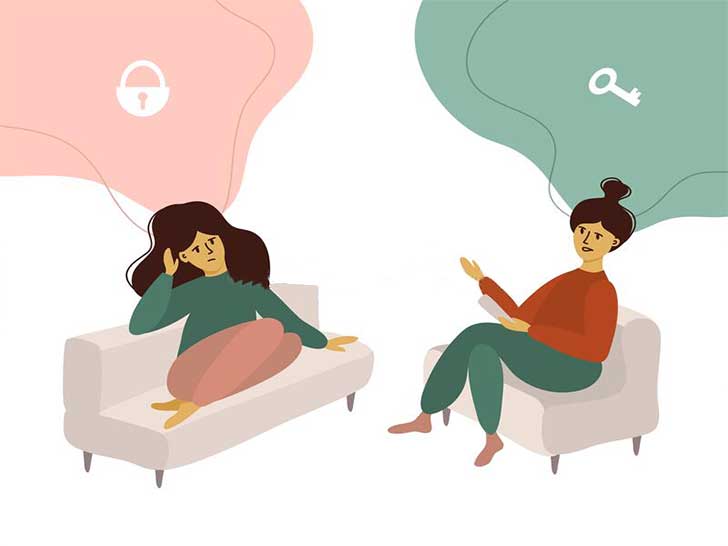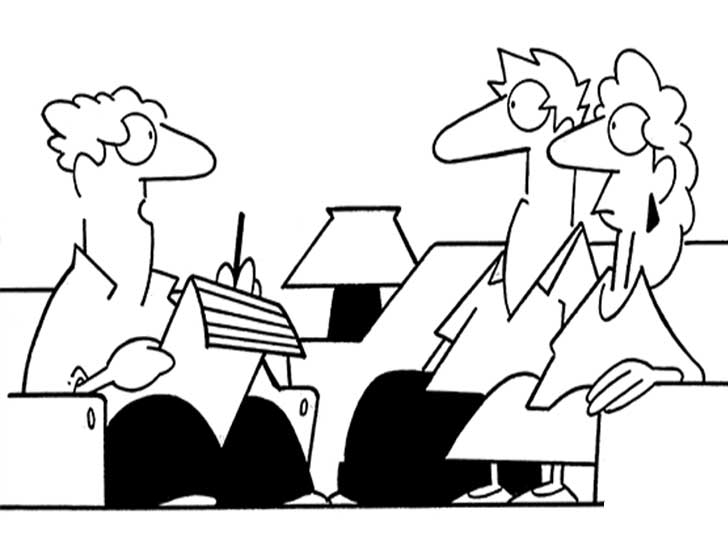اخبار روانشناسی ندای مهر
|
1 Nothing
|
2
|
3
Very Little
|
4
|
5
Some Influence
|
6
|
7
Quite a Bit
|
8
|
9
A Great Deal
|
|
1 Nothing
|
2
|
3
Very Little
|
4
|
5
Some Influence
|
6
|
7
Quite a Bit
|
8
|
9
A Great Deal
|
|
1 Nothing
|
2
|
3
Very Little
|
4
|
5
Some Influence
|
6
|
7
Quite a Bit
|
8
|
9
A Great Deal
|
|
1 Nothing
|
2
|
3
Very Little
|
4
|
5
Some Influence
|
6
|
7
Quite a Bit
|
8
|
9
A Great Deal
|
|
1 Nothing
|
2
|
3
Very Little
|
4
|
5
Some Influence
|
6
|
7
Quite a Bit
|
8
|
9
A Great Deal
|
|
1 Nothing
|
2
|
3
Very Little
|
4
|
5
Some Influence
|
6
|
7
Quite a Bit
|
8
|
9
A Great Deal
|
|
1 Nothing
|
2
|
3
Very Little
|
4
|
5
Some Influence
|
6
|
7
Quite a Bit
|
8
|
9
A Great Deal
|
|
1 Nothing
|
2
|
3
Very Little
|
4
|
5
Some Influence
|
6
|
7
Quite a Bit
|
8
|
9
A Great Deal
|
|
1 Nothing
|
2
|
3
Very Little
|
4
|
5
Some Influence
|
6
|
7
Quite a Bit
|
8
|
9
A Great Deal
|
|
1 Nothing
|
2
|
3
Very Little
|
4
|
5
Some Influence
|
6
|
7
Quite a Bit
|
8
|
9
A Great Deal
|
|
1 Nothing
|
2
|
3
Very Little
|
4
|
5
Some Influence
|
6
|
7
Quite a Bit
|
8
|
9
A Great Deal
|
|
1 Nothing
|
2
|
3
Very Little
|
4
|
5
Some Influence
|
6
|
7
Quite a Bit
|
8
|
9
A Great Deal
|
|
1 Nothing
|
2
|
3
Very Little
|
4
|
5
Some Influence
|
6
|
7
Quite a Bit
|
8
|
9
A Great Deal
|
|
1 Nothing
|
2
|
3
Very Little
|
4
|
5
Some Influence
|
6
|
7
Quite a Bit
|
8
|
9
A Great Deal
|
|
1 Nothing
|
2
|
3
Very Little
|
4
|
5
Some Influence
|
6
|
7
Quite a Bit
|
8
|
9
A Great Deal
|
|
1 Nothing
|
2
|
3
Very Little
|
4
|
5
Some Influence
|
6
|
7
Quite a Bit
|
8
|
9
A Great Deal
|
|
1 Nothing
|
2
|
3
Very Little
|
4
|
5
Some Influence
|
6
|
7
Quite a Bit
|
8
|
9
A Great Deal
|
|
1 Nothing
|
2
|
3
Very Little
|
4
|
5
Some Influence
|
6
|
7
Quite a Bit
|
8
|
9
A Great Deal
|
|
1 Nothing
|
2
|
3
Very Little
|
4
|
5
Some Influence
|
6
|
7
Quite a Bit
|
8
|
9
A Great Deal
|
|
1 Nothing
|
2
|
3
Very Little
|
4
|
5
Some Influence
|
6
|
7
Quite a Bit
|
8
|
9
A Great Deal
|
|
1 Nothing
|
2
|
3
Very Little
|
4
|
5
Some Influence
|
6
|
7
Quite a Bit
|
8
|
9
A Great Deal
|
|
1 Nothing
|
2
|
3
Very Little
|
4
|
5
Some Influence
|
6
|
7
Quite a Bit
|
8
|
9
A Great Deal
|
|
1 Nothing
|
2
|
3
Very Little
|
4
|
5
Some Influence
|
6
|
7
Quite a Bit
|
8
|
9
A Great Deal
|
|
1 Nothing
|
2
|
3
Very Little
|
4
|
5
Some Influence
|
6
|
7
Quite a Bit
|
8
|
9
A Great Deal
|
|
1 Nothing
|
2
|
3
Very Little
|
4
|
5
Some Influence
|
6
|
7
Quite a Bit
|
8
|
9
A Great Deal
|
|
1 Nothing
|
2
|
3
Very Little
|
4
|
5
Some Influence
|
6
|
7
Quite a Bit
|
8
|
9
A Great Deal
|
|
1 Nothing
|
2
|
3
Very Little
|
4
|
5
Some Influence
|
6
|
7
Quite a Bit
|
8
|
9
A Great Deal
|
|
1 Nothing
|
2
|
3
Very Little
|
4
|
5
Some Influence
|
6
|
7
Quite a Bit
|
8
|
9
A Great Deal
|
|
1 Nothing
|
2
|
3
Very Little
|
4
|
5
Some Influence
|
6
|
7
Quite a Bit
|
8
|
9
A Great Deal
|
|
1 Nothing
|
2
|
3
Very Little
|
4
|
5
Some Influence
|
6
|
7
Quite a Bit
|
8
|
9
A Great Deal
|
|
1. The mannerisms of teachers at this school are annoying.
|
Rarely Occurs
|
Sometimes Occurs
|
Often Occurs
|
Very Frequently Occurs
|
|
2. Teachers have too many committee requirements.
|
|
|
|
|
|
3. Teachers spend time after school with students who have individual problems.
|
|
|
|
|
|
4. Teachers are proud of their school
|
|
|
|
|
|
5. The principal sets an example by working hard himself/herself.
|
|
|
|
|
|
6. The principal compliments teachers.
|
|
|
|
|
|
7. Teacher-principal conferences are dominated by the principal.
|
|
|
|
|
|
8. Routine duties interfere with the job of teaching.
|
|
|
|
|
|
9. Teachers interrupt other faculty members who are talking in faculty meetings.
|
|
|
|
|
|
10. Student government has an influence on school policy.
|
|
|
|
|
|
11. Teachers are friendly with students.
|
|
|
|
|
|
12. The principal rules with an iron fist.
|
|
|
|
|
|
13. The principal monitors everything teachers do.
|
|
|
|
|
|
14. Teachers' closest friends are other faculty members at this school.
|
|
|
|
|
|
15. . Administrative paper work is burdensome at this school.
|
|
|
|
|
|
16. Teachers help and support each other.
|
|
|
|
|
|
17. Pupils solve their problems through logical reasoning.
|
|
|
|
|
|
18. The principal closely checks teacher activities.
|
|
|
|
|
|
19. The principal is autocratic.
|
|
|
|
|
|
20. The morale of teachers is high.
|
|
|
|
|
|
21. Teachers know the family background of other faculty members.
|
|
|
|
|
|
22. Assigned non-teaching duties are excessive.
|
|
|
|
|
|
23. The principal goes out of his/her way to help teachers.
|
|
|
|
|
|
24. . The principal explains his/her reason for criticism to teachers.
|
|
|
|
|
|
25. The principal is available after school to help teachers when assistance is needed.
|
|
|
|
|
|
26. Teachers invite other faculty members to visit them at home.
|
|
|
|
|
|
27. Teachers socialize with each other on a regular basis.
|
|
|
|
|
|
28. Teachers really enjoy working here.
|
|
|
|
|
|
29. The principal uses constructive criticism.
|
|
|
|
|
|
30. The principal looks out for the personal welfare of the faculty.
|
|
|
|
|
|
31. The principal supervises teachers closely.
|
|
|
|
|
|
32. The principal talks more than listens.
|
|
|
|
|
|
33. Pupils are trusted to work together without supervision.
|
|
|
|
|
|
34. Teachers respect the personal competence of their colleagues.
|
|
|
|
|
|||
|
Teacher Efficacy Scale (Short Form)
A number of statements about organizations‚ people‚ and teaching are presented below. The purpose is to gather information regarding the actual attitudes of educators concerning these statements. There are no correct or incorrect answers. We are interested only in your frank opinions. Your responses will remain confidential.
INSTRUCTIONS: Please indicate your personal opinion about each statement by circling the appropriate response at the right of each statement.
KEY: 1=Strongly Agree 2=Moderately Agree 3=Agree slightly more than disagree
4=Disagree slightly more than agree 5=Moderately Disagree 6=Strongly Disagree
1. The amount a student can learn is primarily related to family background. 1 2 3 4 5 6
2. If students aren't disciplined at home‚ they aren’t likely to accept any discipline. 1 2 3 4 5 6
3. When I really try‚ I can get through to most difficult students. 1 2 3 4 5 6
4. A teacher is very limited in what he/she can achieve because a student's home environment is a large influence on his/her achievement.1 2 3 4 5 6
5. If parents would do more for their children‚ I could do more. 1 2 3 4 5 6
6. If a student did not remember information I gave in a previous lesson‚ I would know how to increase his/her retention in the next lesson.1 2 3 4 5 6
7. If a student in my class becomes disruptive and noisy‚ I feel assured that I know some techniques to redirect him/her quickly. 1 2 3 4 5 6
8. If one of my students couldn't do a class assignment‚ I would be able to accurately assess whether the assignment was at the correct level of difficulty. 1 2 3 4 5 6
9. If I really try hard‚ I can get through to even the most difficult or unmotivated students. 1 2 3 4 5 6
1O. When it comes right down to it‚ a teacher really can’t do much because most of a student’s motivation and performance depends on his or her home environment. 1 2 3 4 5 6
*In Hoy‚ W.K. & Woolfolk‚ A.E. (1993). Teachers' sense of efficacy and the organizational health of
schools. The Elementary School Journal 93‚ 356-372.
|
|
1. The principal compliments teachers.
|
Rarely Occurs
|
Sometimes Occurs
|
Often Occurs
|
Very Frequently Occurs
|
|
2. Teachers have parties for each other.
|
|
|
|
|
|
3. Teachers are burdened with busywork.
|
|
|
|
|
|
4. Routine duties interfere with the job of teaching.
|
|
|
|
|
|
5. Teachers "go the extra mile" with their students.
|
|
|
|
|
|
6. Teachers are committed to helping their students.
|
|
|
|
|
|
7. Teachers help students on their own time.
|
|
|
|
|
|
8. Teachers interrupt other teachers who are talking in staff meetings.
|
|
|
|
|
|
9. The principal rules with an iron fist.
|
|
|
|
|
|
10. The principal encourages teacher autonomy.
|
|
|
|
|
|
11. The principal goes out of his/her way to help teachers.
|
|
|
|
|
|
12. The principal is available after school to help teachers when assistance is needed.
|
|
|
|
|
|
13. Teachers invite other faculty members to visit them at home.
|
|
|
|
|
|
14. Teachers socialize with each other on a regular basis.
|
|
|
|
|
|
15. The principal uses constructive criticism.
|
|
|
|
|
|
16. Teachers who have personal problems receive support from other staff members.
|
|
|
|
|
|
17. Teachers stay after school to tutor students who need help.
|
|
|
|
|
|
18. Teachers accept additional duties if students will benefit.
|
|
|
|
|
|
19. The principal looks out for the personal welfare of the faculty.
|
|
|
|
|
|
20. The principal supervises teachers closely.
|
|
|
|
|
|
21. Teachers leave school immediately after school is over.
|
|
|
|
|
|
22. Most of the teachers here accept the faults of their colleagues.
|
|
|
|
|
|
23. Teachers exert group pressure on non-conforming faculty members.
|
|
|
|
|
|
24. The principal listens to and accepts teachers' suggestions.
|
|
|
|
|
|
25. Teachers have fun socializing together during school time.
|
|
|
|
|
|
26. Teachers ramble when they talk at faculty meetings.
|
|
|
|
|
|
27. Teachers are rude to other staff members.
|
|
|
|
|
|
28. Teachers make "wise cracks" to each other during meetings.
|
|
|
|
|
|
29. Teachers mock teachers who are different.
|
|
|
|
|
|
30. Teachers don't listen to other teachers.
|
|
|
|
|
|
31. Teachers like to hear gossip about other staff members.
|
|
|
|
|
|
32. The principal treats teachers as equals.
|
|
|
|
|
|
33. The principal corrects teachers' mistakes.
|
|
|
|
|
|
34. Teachers provide strong social support for colleagues.
|
|
|
|
|
|
35. Teachers respect the professional competence of their colleagues.
|
|
|
|
|
|
36. The principal goes out of his/her way to show appreciation to teachers.
|
|
|
|
|
|
37. The principal keeps a close check on sign-in times.
|
|
|
|
|
|
38. The principal monitors everything teachers do.
|
|
|
|
|
|
39. Administrative paperwork is burdensome at this school.
|
|
|
|
|
|
40. Teachers help and support each other.
|
|
|
|
|
|
41. The principal closely checks teacher activities.
|
|
|
|
|
|
42. Assigned non-teaching duties are excessive.
|
|
|
|
|
|
43. The interactions between team/unit members are cooperative.
|
|
|
|
|
|
44. The principal accepts and implements ideas suggested by faculty members.
|
|
|
|
|
|
45. Members of teams/units consider other members to be their friends.
|
|
|
|
|
|
46. Extra help is available to students who need help.
|
|
|
|
|
|
47. Teachers volunteer to sponsor after school activities.
|
|
|
|
|
|
48. Teachers spend time after school with students who have individual problems.
|
|
|
|
|
|
49. The principal sets an example by working hard himself/herself
|
|
|
|
|
|
50. Teachers are polite to one another.
|
|
|
|
|
BIS/BAS scalesSeveral theorists have argued that two general motivational systems underlie behavior. A behavioral approach system (BAS) is believed to regulate appetitive motives‚ in which the goal is to move toward something desired. A behavioral avoidance (or inhibition) system (BIS) is said to regulate aversive motives‚ in which the goal is to move away from something unpleasant. We developed the BIS/BAS scales to assess individual differences in the sensitivity of these systems. Carver‚ C. S.‚ & White‚ T. L. (1994). Behavioral inhibition‚ behavioral activation‚ and affective responses to impending reward and punishment: The BIS/BAS scales. Journal of Personality and Social Psychology‚ 67‚ 319-333. [abstract] Here is how we administer the BIS/BAS scales here‚ followed by scoring instructions: ------------------------------------------------------------------------ BIS/BAS Each item of this questionnaire is a statement that a person may either agree with or disagree with. For each item‚ indicate how much you agree or disagree with what the item says. Please respond to all the items; do not leave any blank. Choose only one response to each statement. Please be as accurate and honest as you can be. Respond to each item as if it were the only item. That is‚ don't worry about being "consistent" in your responses. Choose from the following four response options: 1 = very true for me 1. A person's family is the most important thing in life. 11. It's hard for me to find the time to do things such as get a haircut. 21. When I go after something I use a "no holds barred" approach. ------------------------------------------------------------------------ Items other than 2 and 22 are reverse-scored. BAS Drive: 3‚ 9‚ 12‚ 21 BIS: 2‚ 8‚ 13‚ 16‚ 19‚ 22‚ 24 Items 1‚ 6‚ 11‚ 17‚ are fillers. The fact that there are three BAS-related scales and only one BIS-related scales was not planned or theoretically motivated. The factors emerged empirically‚ from an item set that was intended to capture diverse manifestations of the BAS‚ according to various theoretical statements. It is likely that a broader sampling of items on the BIS side would also have resulted in more than one scale. I do not encourage combining the BAS scales‚ however‚ because they do turn out to focus on different aspects of incentive sensitivity. In particular‚ Fun Seeking is known to have elements of impulsiveness that are not contained in the other scales.
2 = somewhat true for me
3 = somewhat false for me
4 = very false for me
2. Even if something bad is about to happen to me‚ I rarely experience fear or nervousness.
3. I go out of my way to get things I want.
4. When I'm doing well at something I love to keep at it.
5. I'm always willing to try something new if I think it will be fun.
6. How I dress is important to me.
7. When I get something I want‚ I feel excited and energized.
8. Criticism or scolding hurts me quite a bit.
9. When I want something I usually go all-out to get it.
10. I will often do things for no other reason than that they might be fun.
12. If I see a chance to get something I want I move on it right away.
13. I feel pretty worried or upset when I think or know somebody is angry at me.
14. When I see an opportunity for something I like I get excited right away.
15. I often act on the spur of the moment.
16. If I think something unpleasant is going to happen I usually get pretty "worked up."
17. I often wonder why people act the way they do.
18. When good things happen to me‚ it affects me strongly.
19. I feel worried when I think I have done poorly at something important.
20. I crave excitement and new sensations.
22. I have very few fears compared to my friends.
23. It would excite me to win a contest.
24. I worry about making mistakes.
BAS Fun Seeking: 5‚ 10‚ 15‚ 20
BAS Reward Responsiveness: 4‚ 7‚ 14‚ 18‚ 23
|
1. The teachers accomplish their work with vim‚ vigor‚ and pleasure.
|
Rarely Occurs
|
Sometimes Occurs
|
Often Occurs
|
Very Frequently Occurs
|
|
2. Teachers’ closest friends are other faculty members at this school.
|
|
|
|
|
|
3. Faculty meetings are useless.
|
|
|
|
|
|
4. The principal goes out of his/her way to help teachers.
|
|
|
|
|
|
5. The principal rules with an iron fist.
|
|
|
|
|
|
6. Teachers leave school immediately after school is over.
|
|
|
|
|
|
7. Teachers invite faculty members to visit them at home.
|
|
|
|
|
|
8. There is a minority group of teachers who always oppose the majority.
|
|
|
|
|
|
9. The principal uses constructive criticism.
|
|
|
|
|
|
10. The principal checks the sign-in sheet every morning.
|
|
|
|
|
|
11. Routine duties interfere with the job of teaching.
|
|
|
|
|
|
12. Most of the teachers here accept the faults of their colleagues.
|
|
|
|
|
|
13. Teachers know the family background of other faculty members.
|
|
|
|
|
|
14. Teachers exert group pressure on non-conforming faculty members.
|
|
|
|
|
|
15. The principal explains his/her reasons for criticism to teachers.
|
|
|
|
|
|
16. The principal listens to and accepts teachers’ suggestions.
|
|
|
|
|
|
17. The principal schedules the work for the teachers.
|
|
|
|
|
|
18. Teachers have too many committee requirements.
|
|
|
|
|
|
19. Teachers help and support each other.
|
|
|
|
|
|
20. Teachers have fun socializing together during school time.
|
|
|
|
|
|
21. Teachers ramble when they talk at faculty meetings.
|
|
|
|
|
|
22. The principal looks out for the personal welfare of teachers.
|
|
|
|
|
|
23. The principal treats teachers as equals.
|
|
|
|
|
|
24. The principal corrects teachers’ mistakes.
|
|
|
|
|
|
25. Administrative paperwork is burdensome at this school.
|
|
|
|
|
|
26. Teachers are proud of their school.
|
|
|
|
|
|
27. Teachers have parties for each other.
|
|
|
|
|
|
28. The principal compliments teachers.
|
|
|
|
|
|
29. The principal is easy to understand.
|
|
|
|
|
|
30. The principal closely checks classroom (teacher) activities.
|
|
|
|
|
|
31. Clerical support reduces teachers’ paperwork.
|
|
|
|
|
|
32. New teachers are readily accepted by colleagues.
|
|
|
|
|
|
33. Teachers socialize with each other on a regular basis.
|
|
|
|
|
|
34. The principal supervises t3eachers closely.
|
|
|
|
|
|
35. The principal checks lesson plans.
|
|
|
|
|
|
36. Teachers are burdened with busy work.
|
|
|
|
|
|
37. Teachers socialize together in small‚ select groups.
|
|
|
|
|
|
38. Teachers provide strong social support for colleagues.
|
|
|
|
|
|
39. The principal is autocratic.
|
|
|
|
|
|
40. Teachers respect the professional competence of their colleagues.
|
|
|
|
|
|
41. The principal monitors everything teachers do.
|
|
|
|
|
|
42. The principal goes out of his/her way to show appreciation to teachers.
|
|
|
|
|

-

مشاوره ازدواج چیست و چرا مشاوره قبل ازدواج ضروری است؟
کارشناس ندای مهر (مشاوره ازدواج) -

مشاور یا مشاوره خانواده خوب برای من کیست؟
کارشناس ندای مهر (مشاوره خانواده) -

بررسی کیفیت زندگی زوج های هر دو شاغل؟
کارشناس ندای مهر (مشاوره خانواده) -

روش کار مشاوره ازدواج چگونه است؟
کارشناس ندای مهر (مشاوره ازدواج) -

از دید مشاور ازدواج علت سرد شدن رابطه زوج قبل از مراسم ازدواج چیست؟
کارشناس ندای مهر (مشاوره ازدواج)







